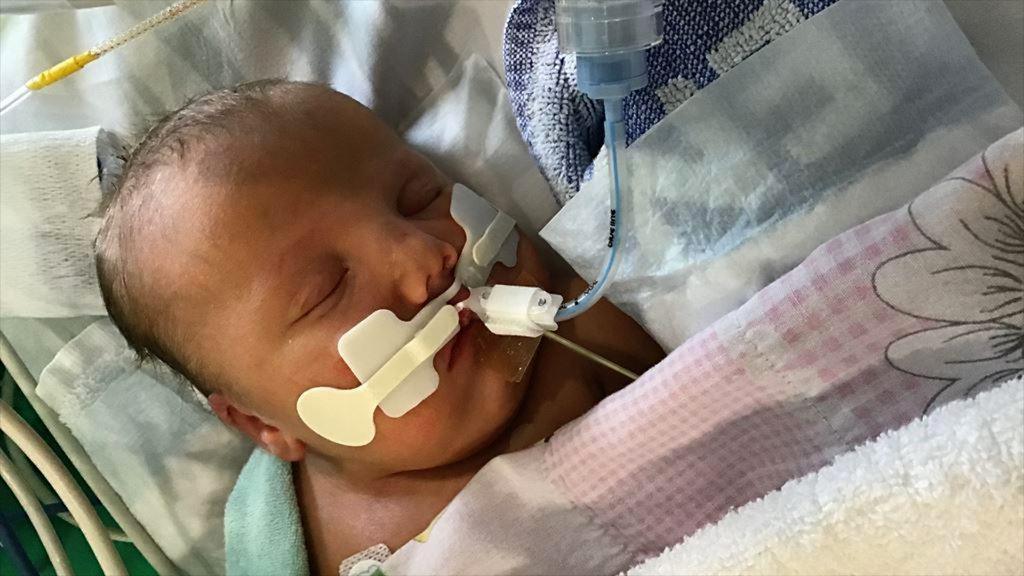Life-saving gene test for seriously ill children in England
- Published
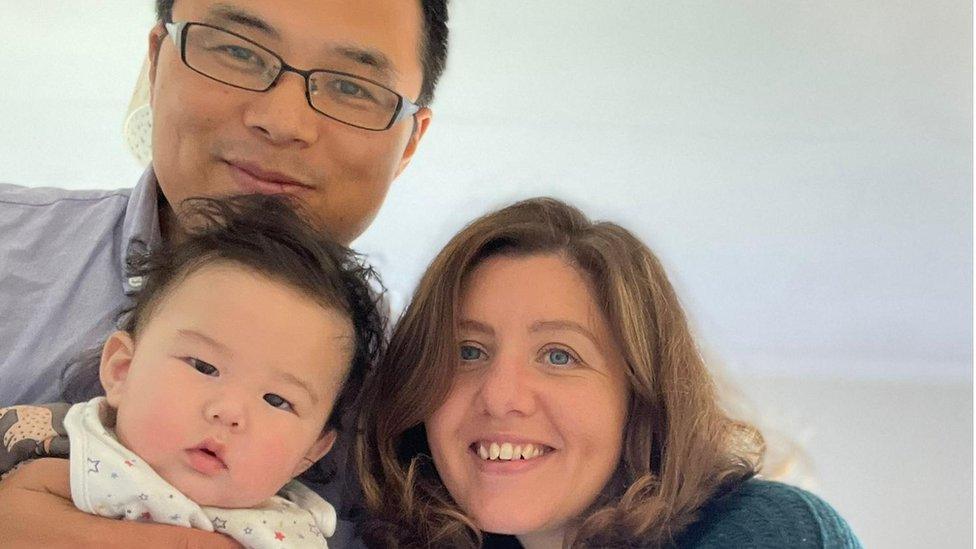
Reuben, with his parents, was diagnosed quickly after genetic testing
Seriously ill babies in England will be able to be diagnosed and treated for rare conditions more quickly, thanks to a ground-breaking genetic testing service.
Using a single blood test, scientists can spot gene mutations, run them through a giant database and identify the cause within days.
These could include forms of severe epilepsy and unusual cancers.
Countless lives could be saved with the advance, NHS England said.
'Really tough to see'
Reuben, who is seven months old, from Cheltenham, Gloucester, was fighting for his life but doctors could not pin down the reason, and tests were inconclusive.
His dad, Atsushi, said: "When the doctor came out and told us that they were doing everything they could to keep him alive, what we were facing really dawned on us.
"We saw him connected to 20, 30 tubes and it was really tough to see."
By analysing Reuben's genome - looking at billions of letters of DNA code in his body - it was found that mutations in the CPS1 gene meant he could not break down nitrogen and that was causing toxic levels of ammonia in his blood to build up.
Reuben received the correct medication quickly and, after two and a half months in Bristol Royal Hospital for Children, he is now doing well at home and waiting for a liver transplant to cure his condition.
His mum, Eleanor, said: "All the care Reuben received would not have happened as quickly and his early diagnosis meant we knew what to expect."
Matching mutations
There are thought to be thousands of other children who could benefit from the life-saving gene testing.
More than 1,200 children and babies end up in intensive care every year. Up until now, they had to undergo extensive levels of invasive tests and results often took weeks to come back.
In 2019, BBC News reported on research showing the potential of genome sequencing to revolutionise the diagnosis of rare childhood conditions.
Now, gene errors can be spotted in a sample of blood analysed at a new genomics lab. These errors are then run through a database of thousands of genetic conditions and, if matched, results are fed back to doctors in seven days or less.
Amanda Pritchard, NHS England chief executive, called the genetic testing service a "global first", adding that the tests would help "to rapidly diagnose the illnesses of thousands of seriously ill children and babies - saving countless lives in the years to come".
Dr Emma Baple, who runs the National Rapid Whole Genome Sequencing Service, said it would transform how rare genetic conditions are diagnosed.
"We know that with prompt and accurate diagnosis, conditions could be cured or better managed with the right clinical care, which would be life-altering - and potentially lifesaving - for so many seriously unwell babies and children."
Based in Devon, the new genetic testing service will process DNA samples of babies and children who end up seriously ill in hospital or who are born with a rare disease.
Rare conditions affect one in 17 people in England during their lifetime and 80% of these are linked to their genes.
Rare genetic disorders often come to light during childhood and are the cause of nearly a third of newborn deaths in intensive care.
NHS England said it had a five-year plan to increase the use of genomic medicine in the health service to bring its benefits to more patients.
Genomic medicine is also being used in Wales, Scotland and Northern Ireland to identify the genetic causes of disease.
Wales launched the UK's first rapid whole genome sequencing service for seriously-ill children in 2020.
Related topics
- Published30 September 2022
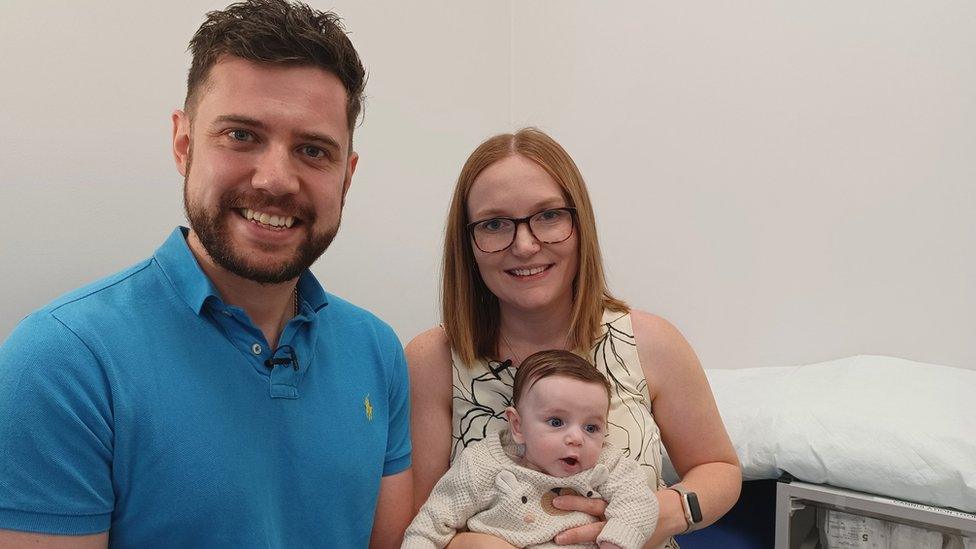
- Published14 April 2022
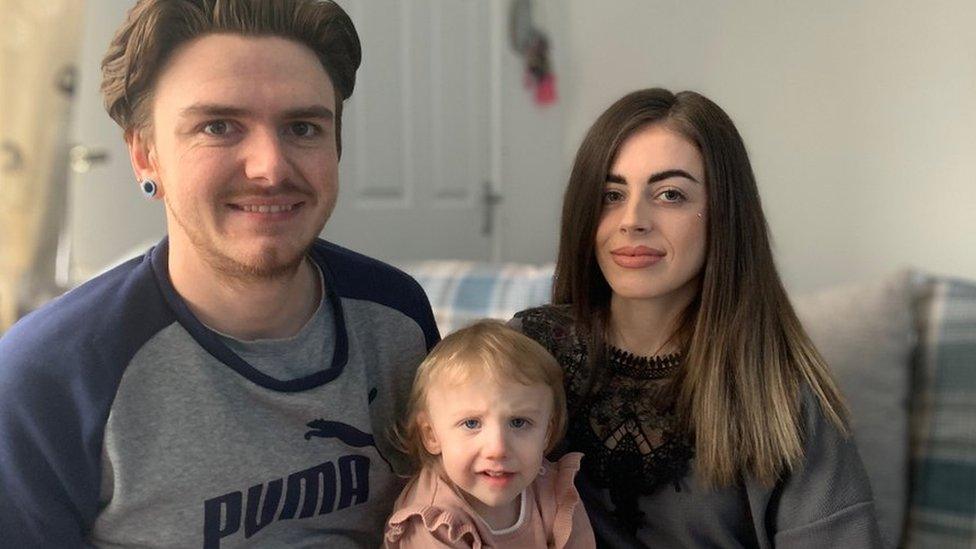
- Published10 June 2019
- Published3 May 2022
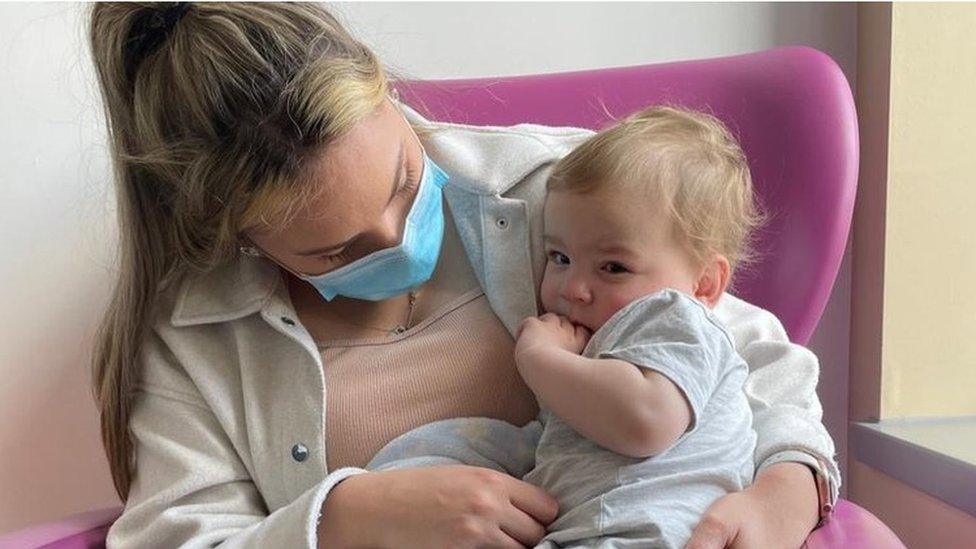
- Published13 April 2022
